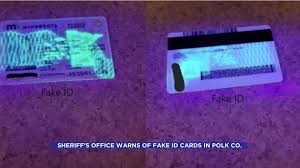digital fake ID
Introduction
In today's fast-paced digital world, the ability to prove one's identity has become a necessity in almost every aspect of life. From online shopping and banking to social media and virtual events, identity verification processes are increasingly complex. However, not everyone wants to provide their real identity for every transaction, which has led to a rising demand for digital fake IDs.
Digital fake IDs are not merely tools for anonymity; they serve diverse purposes, including privacy protection, accessing age-restricted services, and navigating geo-blocked content. While often controversial, these IDs are carving out a space in the modern market due to their versatility and demand across a wide range of industries. As technology continues to evolve, digital fake IDs are poised to play an even more significant role in shaping how we manage and protect personal identity online.
This article will dive deep into the concept of digital fake IDs, exploring their product features, potential markets, and the ethical considerations they present. We'll also analyze the potential target audience for these tools and what makes digital fake IDs a compelling solution for today’s consumers.
1. Defining the Product: What is a Digital Fake ID?
Before diving into the specifics, it's essential to define what a digital fake ID is. A digital fake ID is an electronic version of a traditional fake ID, designed for use in online environments or virtual contexts. Unlike a physical fake ID, which might be used to bypass age restrictions or other regulations in the physical world (such as entering bars or clubs), a digital fake ID is crafted to navigate the complexities of digital verification systems.
Key Characteristics of a Digital Fake ID:
- Digital Format: These IDs are typically stored on a mobile device or computer, allowing them to be easily uploaded or submitted online.
- Customization Options: Users can create digital fake IDs that mimic legitimate forms of identification, such as driver’s licenses, passports, or student IDs, but with altered details.
- Variety of Use Cases: While physical fake IDs are primarily used for age-related restrictions, digital fake IDs can have a broader spectrum of applications, such as accessing region-locked content, protecting personal privacy, or circumventing online identity verification systems.
2. Product Features of Digital Fake IDs
When it comes to digital fake IDs, innovation and customization are at the core of their appeal. Below are some of the critical product features that set these virtual IDs apart.
A. Easy to Generate
One of the most attractive aspects of digital fake IDs is how easy they are to generate. Many platforms and apps provide templates where users can simply input their information, upload photos, and instantly create a professional-looking ID. These services often have user-friendly interfaces that make the process simple, even for those with limited technical knowledge.
B. Customization and Flexibility
Unlike physical fake IDs, digital versions offer immense customization flexibility. Users can adjust a wide range of variables, including names, addresses, dates of birth, and even photographs, to suit specific needs. This flexibility allows users to create IDs tailored for various online platforms, whether it’s for social media, gaming, or even more formal applications such as online education platforms or e-commerce sites.
C. High-Quality Graphics
High-quality, professional-grade graphics are essential for digital fake IDs. Many apps that offer this service provide enhanced features, such as holographic overlays or QR codes, that closely mimic those found on real identification cards. These advanced features make digital fake IDs more convincing and useful in environments where detailed verification might take place.
D. Use of QR Codes and Digital Signatures
A growing number of digital fake IDs now include features like QR codes and digital signatures, adding an extra layer of credibility and making it harder to detect whether an ID is fake. These security features are often used in real-world applications, which helps digital fake IDs blend seamlessly with legitimate forms of ID.
E. Anonymity and Privacy Features
For users who prioritize their privacy, digital fake IDs offer an extra layer of protection by concealing their real identities. With the growing concerns around data privacy and personal information being misused online, these IDs allow users to interact with websites or services without providing sensitive personal details. Whether it's signing up for a dating platform or participating in online forums, digital fake IDs help users stay anonymous.
F. Cross-Platform Usability
The best digital fake IDs can be used across multiple platforms. Whether it’s accessing a region-blocked streaming service, getting through an online age verification system, or signing up for a free trial under different identities, the flexibility of these IDs makes them versatile tools in the modern digital age.
3. Market Analysis: Demand and Growth Opportunities
As the digital age continues to evolve, the demand for digital fake IDs has surged. From casual internet users to businesses needing alternative identity solutions, the market potential for these tools has grown significantly.
A. Growing Concerns Over Data Privacy
Data privacy concerns are a significant factor driving the demand for digital fake IDs. With a growing number of cyberattacks, data breaches, and identity theft incidents, people are more aware than ever about how their personal information is used and stored online. For many, using a digital fake ID offers a layer of protection against potential misuse or theft of their real identity.
B. Age-Restricted Content
Digital fake IDs are often used by individuals looking to access age-restricted content, such as gambling websites, streaming services, or adult content. Rather than inputting their real details into a potentially risky site, users can create digital fake IDs to bypass age gates and protect their identity.
C. Access to Geo-Blocked Content
In an increasingly global digital environment, many people find themselves restricted by geo-blocked content. Whether it's a streaming service only available in certain regions or a website that restricts access based on location, digital fake IDs allow users to mask their real identity and access content they would otherwise be unable to reach.
D. Alternative for Social Media and Online Gaming
Social media and online gaming platforms often require verification to create accounts or access certain features. Users who prefer to keep their real identities private—either for safety or personal reasons—may turn to digital fake IDs. These IDs allow them to interact freely in these digital spaces without compromising their personal information.
E. Corporate and Professional Use
Interestingly, even some corporations have started to explore the potential of digital fake IDs. These companies use fake IDs to create multiple test accounts for product research, A/B testing, or to maintain a degree of separation between corporate and personal identities in sensitive industries.
4. Target Audience for Digital Fake IDs
The target audience for digital fake IDs is surprisingly broad and includes both casual users and professionals from various sectors. Here’s a closer look at who is most likely to benefit from or be interested in digital fake IDs:
A. Privacy-Conscious Consumers
With an ever-increasing number of online platforms requiring identity verification, privacy-conscious individuals are turning to digital fake IDs to shield their true identities. Whether it’s avoiding unwanted tracking, spam, or exposure to hackers, this audience values anonymity above all.
B. Underage Internet Users
Many underage internet users turn to digital fake IDs to access services and content that may have age restrictions, from video games with age gates to adult-oriented content. This demographic is often tech-savvy, familiar with using digital tools to navigate the internet more freely.
C. Online Gamers and Streamers
Gamers and streamers are often cautious about sharing their real information online due to the potential risks of hacking, doxxing, or harassment. Digital fake IDs provide them with a way to maintain their online persona without putting their real identity at risk.
D. Digital Nomads and Global Citizens
For those who work remotely or frequently travel, digital fake IDs can offer a means of bypassing geo-blocks and accessing restricted content. Whether it's accessing region-locked streaming services or simply maintaining multiple online profiles for different countries, digital fake IDs provide flexibility in managing one’s digital presence globally.
E. Businesses and Marketers
As previously mentioned, some businesses use digital fake IDs to conduct market research and product testing in a more controlled or anonymous manner. These IDs allow them to simulate customer experiences without tipping off competitors or affecting market trends.
5. Benefits of Digital Fake IDs
Digital fake IDs offer several benefits, particularly in the realms of privacy, security, and accessibility. Here are some of the primary advantages:
A. Privacy and Anonymity
Perhaps the most significant benefit of digital fake IDs is the level of privacy they provide. In an era where personal data is constantly harvested, many consumers are looking for ways to shield themselves from invasive data collection practices. By using a digital fake ID, individuals can engage in online activities without exposing their real identity.
B. Access Without Borders
Digital fake IDs enable users to bypass restrictions based on geographic location or age. This access is especially valuable for those living in regions with heavy internet censorship or restrictions on content availability. For instance, someone in a country where specific websites are blocked may use a digital fake ID to appear as though they’re accessing the internet from a more liberal region.
C. Safety in Online Interactions
For individuals engaging in online dating, social media, or any platform where personal information is shared, digital fake IDs can offer a layer of protection. Users can mask their real identity while getting to know someone or participating in communities, ensuring that their private life remains secure.
D. Flexibility for Businesses
For businesses, digital fake IDs provide the flexibility to test products and services under different identities. This feature is valuable in scenarios like A/B testing, where companies need to see how different customer segments react to new features or changes without influencing results by using a corporate identity.
6. Ethical Considerations and Risks
While digital fake IDs come with several benefits, they also raise ethical questions and potential risks that need to be carefully considered.
A. Legality and Misuse
The most obvious concern surrounding digital fake IDs is their legality. In many countries, using a fake ID—digital or otherwise—can be illegal, especially when used to deceive authorities, access restricted services, or commit fraud. Users should be aware of the potential legal repercussions of using digital fake IDs in situations where deception is unlawful.
B. Encouraging Dishonesty
Digital fake IDs can encourage dishonest behavior, particularly among younger users who may not fully understand the implications of using a fake identity. For example, underage users might use these IDs to access content or services they are not legally permitted to view or engage in, which can have serious consequences.
C. Security Risks
While digital fake IDs are designed to protect user privacy, they can also create vulnerabilities. Fake ID apps or services may not be secure, potentially exposing users to hacking or other forms of cybercrime. Additionally, if a digital fake ID falls into the wrong hands, it could be used for malicious purposes, such as impersonation or fraud.
D. Impact on Businesses
Digital fake IDs can also pose risks for businesses, especially those that rely on age verification or location-based services. If too many users are accessing a service with fake credentials, it could disrupt business operations or lead to compliance issues with regulatory authorities.
7. Conclusion
The rise of digital fake IDs reflects a growing demand for flexibility and privacy in the digital age. These tools, though controversial, offer various benefits to consumers and businesses alike. From protecting personal privacy to bypassing geo-restrictions, digital fake IDs have carved out a niche in the online marketplace.
However, ethical considerations and legal risks cannot be ignored. The balance between maintaining personal privacy and ensuring that these tools are not used for harmful purposes will be essential as digital fake IDs continue to evolve. As technology advances, the world of online identity will only become more complex, and digital fake IDs are likely to remain a hot topic of debate in the years to come.
 Fake ID market analysis
Fake ID market analysis
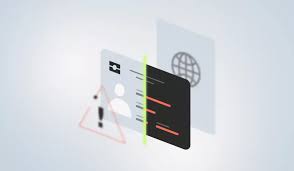 Custom ID services
Custom ID services
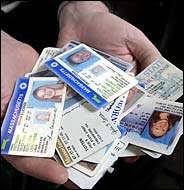 Educational technology trends
Educational technology trends
 virtual identification
virtual identification
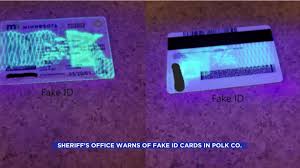 Fake ID online
Fake ID online
 Fake identification cards
Fake identification cards
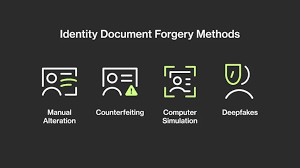 Campus identification systems
Campus identification systems

